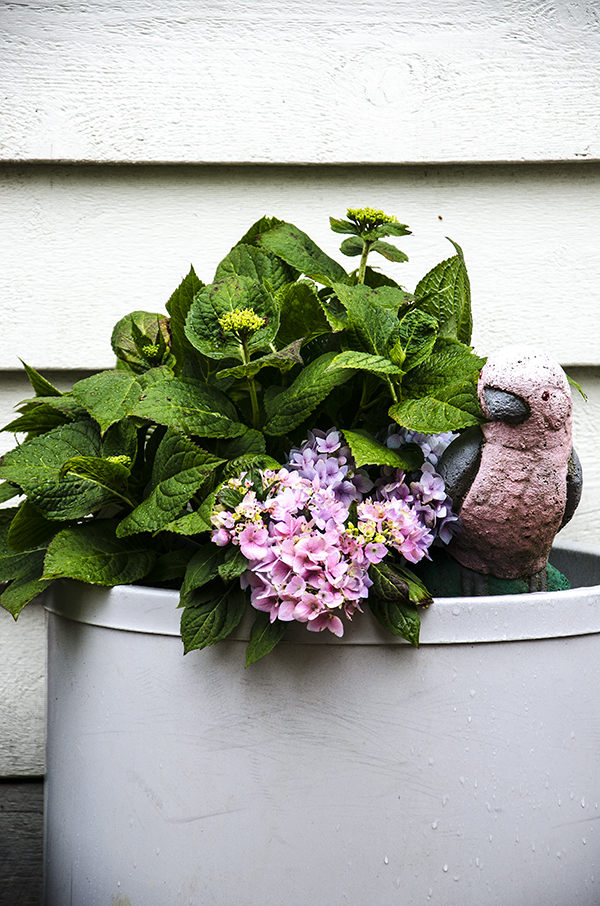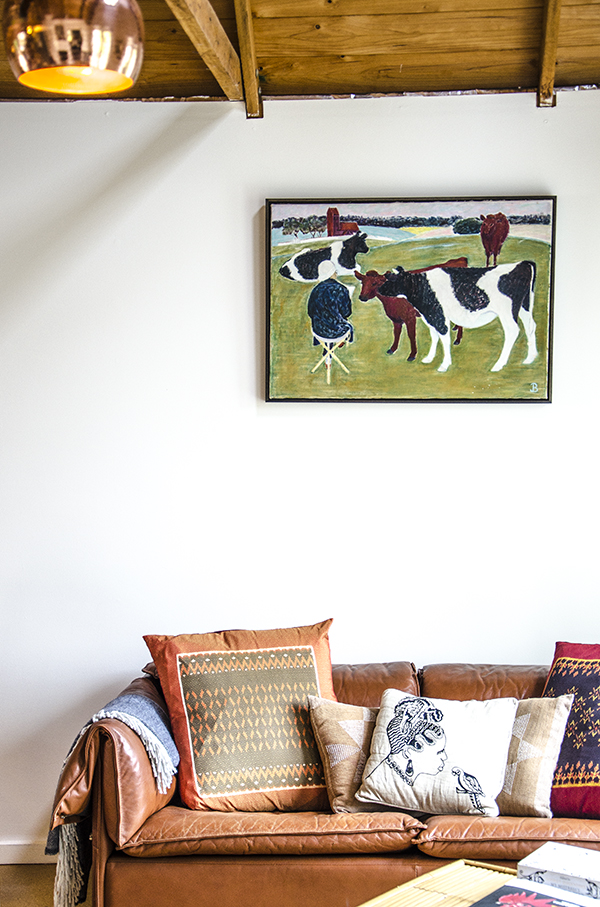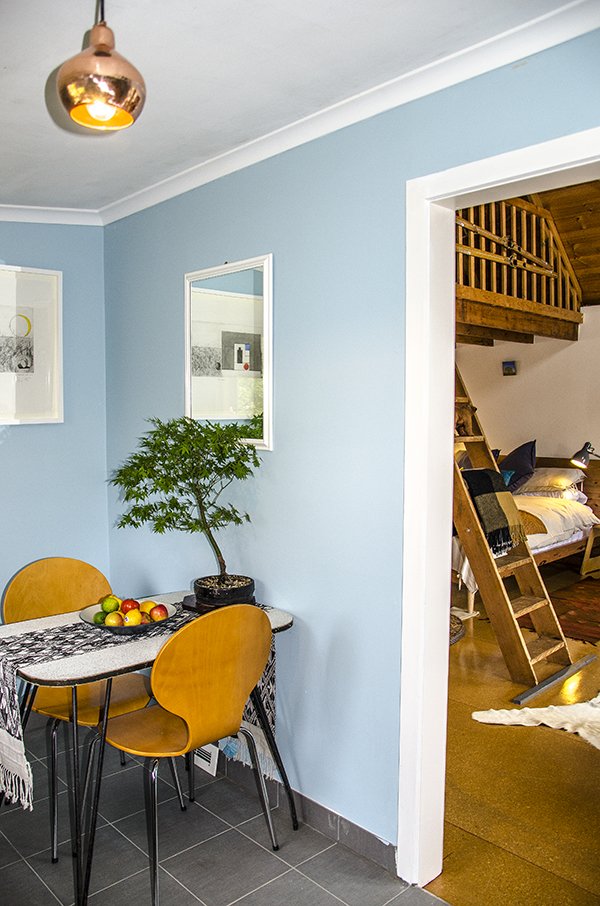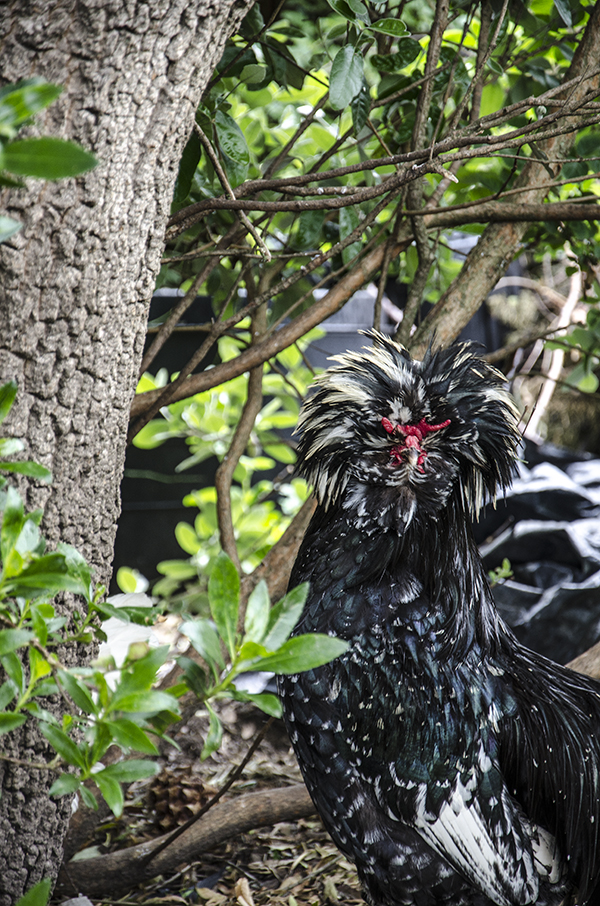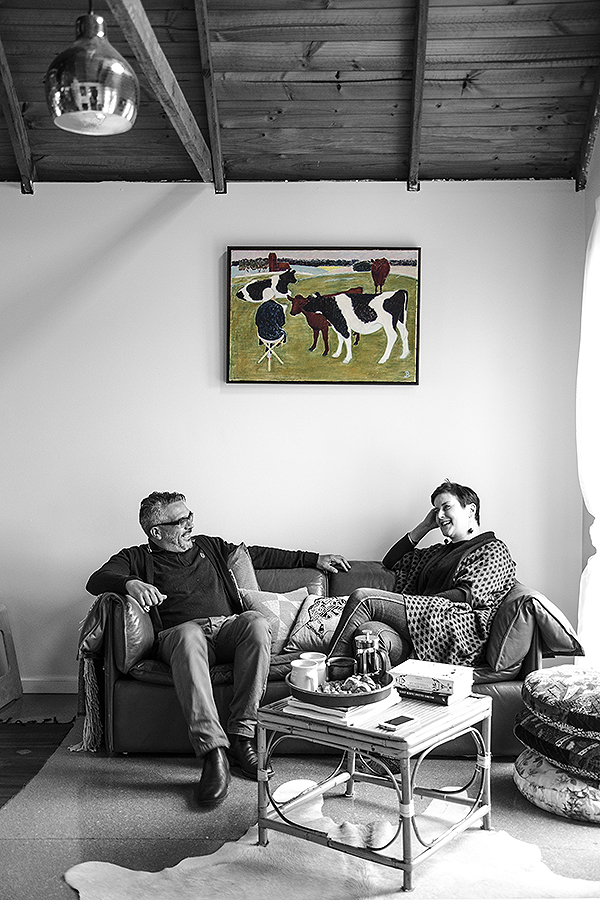







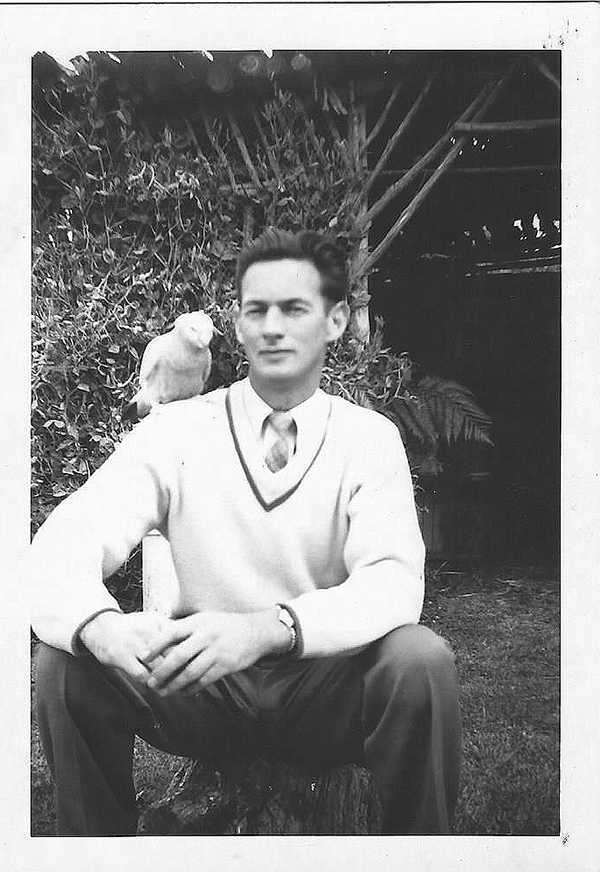

It’s hard to imagine that the happy, handsome, diversely skilled, hard-working young man in the photos above would one day, at the age of 82, send a hand-written letter addressed to someone he didn’t know in a last attempt to find someone who might listen to his ideas & insights. “I still hold out hope of having a meaningful conversation with someone – someday – but feel in my declining years the despair might take precedent,” he wrote.
One year ago, almost to the day, I received that hand-written letter. The letter was addressed to me via the PO Box of a magazine I was writing for at the time. It was belatedly passed on to me a month or two after it had arrived. The 82-year-old man had written to ME because he had read a story I happened to have written about his cousin’s son; a tall Shearer he affectionately knew as ‘The Long Bloke’.
“Hi, my name is Norm Muir,” the letter began. “I very much admire your style of writing – the way you captured the essence of the ‘Long Bloke’ in a few short pages.” “A retired Bushman best describes me,” the letter continued. “Should you see a gleam of anything in all of this – give us a ring. Should I be pottering around the garden, and miss the call, leave a message. Yours Sincerely, Norm.”
I called Norm the moment I finished reading his letter.
Norm and I have since exchanged several letters (it’s been nice to revive the art of handwriting), swapped books and spent many hours mulling over life in the bush, early Australia, the gold rush, the ups and downs of country life, the booms & busts of Australia and the topic most pressing for Norm – how Australia could better harvest & store its rainwater. Norm has also taught me a great deal about the habits of foxes when preying on young lambs & chickens, he has brought me bunches of home-grown roses & rhododendrons, baskets of beans, potatoes & plant cuttings, shared some tips & tricks for creating a healthy veggie patch as well as imparted some handy bush knowledge.
Norm knows the land around him like the back of his hand. He’s observant & skilled. He’s had to be; his working life depended on it. Over the years, Norm has made a living as a rabbit trapper, fox-hunter, gold fossicker, spud digger & Bagger, ice carter & store keeper. He’s fished, caught eels, sewn wheat & spud bags, cut, carted and stacked hay, driven trucks & tractors, fenced, delivered ice, cut cane fields, mowed lawns, felled trees and chopped & delivered fire wood. From the Cobaws to the Castlemaine Gold Diggings, Norm is as skilled with a knife, a rifle and a rod as he is with a spade, an axe and a camp oven. He’d grow, hunt, fish, gather, milk, pluck, skin, make, forage & cook before he’d buy.
Our friendship doesn’t rely on the time-efficient conveniences and comfortable distances afforded by text messages, email, or internet. Instead, it is a “no bullshit” kind of relationship built upon one-on-one time, cups of tea, his wife Mary’s delightful & generous hospitality & heart-felt conversations. Spending time with Norm is a bit like seeking the company of an Oracle; his tales offer a window into the past and how life in the country used to be before, in Norm’s words, the “old ways, skills & knowledge” started to “die out”. His vivid & colourful recollections of life in country Victoria in the 1930s onwards are transmitted to me like radio waves between our two stations: ‘then’ and ‘now’.
The things many of us admire about the self-sufficient lives of popular TV & Internet personalities like Rohan Anderson (Whole Larder Love), Hugh Fearnley-Whittingstall (River Cottage) and Rodney Dunn + Séverine Demanet (The Agrarian Kitchen) used to be the ‘norm’ for Norm and many of his peers.
At 82 years of age, with a bright mind keen for conversation and a wealth of knowledge and skills to share, I’m reminded when I chat with Norm (just as I am when I chat with my parents) of the saying, ‘we lose a library when we lose our community elders’. Norm often says to me, “Danielle, the problem with our friendship is that of the little time I’ve got left in this world, I’ve got all the time in the world to give, whereas you young, busy folk have so much time ahead of you yet so little of it to spare.”
This Festive Season give the gift of time & in return receive the gift of sharing in the wisdom, recollections, skills & company of those who truly deserve it. And, as Norm says, if you’ve just moved to the country or been here a while “talk to the quiet old Lady or Gentleman sitting in the back row – tell them your plans – you might get a big surprise.” Enjoy! x




 You are 82 years old & describe yourself as a ‘retired bushman’. Tell us a little about the life you have led living in the country?
You are 82 years old & describe yourself as a ‘retired bushman’. Tell us a little about the life you have led living in the country?
‘Countryphiles’ – Cute name! I needed the dictionary. ‘Bushman’ as opposed to ‘City Slicker’. A ‘little’ deletes too much – so an abbreviated coverage – as best I can. Born 1931. The depth of the Great Depression. Education: Minimal – From a Scholastic point of view. Wide ranging – even ‘brilliant’ in a Rural Aussie sense. Eighth Grade, primary school – Merit Certificate. An eighteen-month Junior Tech course in Melbourne then I hit the Factory floor – ‘literally’, in my fourteenth year. A brief few months’ stint in a Cabinet Making Factory in Collingwood. At 22/11 (Twenty two shillings and eleven pence) per week and board at £3 per week, I couldn’t get out of the place quickly enough. Christmas 1946 saw me home and pitching sheaves in the harvest field 15/- per day.
Most of us are a product of our environment, so being born into a tough, hard-working family (shearers, rabbit trappers, spud diggers) that would take on any contract or piece work from which skill, speed and endurance could, and often did, double your wage. So I evolved.
Can you list some of the jobs/skills you’ve learnt/mastered in your lifetime as a bushman?
‘Jobs’: Sufficient to say I have had experience in most rural occupations. No expert at any, but the sheer range of experience always got me through. ‘Skills’: Now that’s another ball game. The greatest of these is ‘Observation’. We observe, we learn. If we don’t understand – we ask (A good lesson).
My skills at observation began at age 21/2 – 3. I was taken in my ‘pusher’ to see ‘The Big Water’; a natural flood cycle that appears every 27-30 years. Four times in my life floods have flowed out the Hotel’s front door in Romsey. More recent observations of water, the movement of, or lack of, are down to ‘Mother Nature’. She can be a nasty ‘B’ at times. Man can neither alter nor divert ‘Her’, he must learn to play along.
My skills in the workforce and field are as many and diverse as jobs undertaken. To list a random sample! Concrete: the mix dictates the result, regardless of the troweling ability. A ‘mug’ hunter can shoot a fox, if he’s in the right place at the right time. To skin said critter and peg the skin to dry requires skill. To head a field of wheat efficiently and present the grain to market in the best possible condition requires not only skill but knowledge. Moisture content and husk fill etc. To fill and sew a bag of wheat. If not sewn correctly, grain will run freely once under transport or stacked. Catch a trout, eel, tench, yellow belly, or Murray Cod – comparatively easy. Present said fish at the table as an edible dish requires a chef’s skill. The average country mum and dad both had these wild game/fresh fish to food preparation skills.
The list goes on. Spuds, fruit, tomatoes etc all have a use-by date. So, to harvest too early or too late doesn’t cut it. Nor does ‘refrigeration’! Knowing how to cure, store, dry, preserve – these were common skills we all possessed or our basic survival.
Many people move to the country in search of a more ‘connected’ & ‘simpler life’ away from the ‘rat race’. Do you think many of us have lost touch with how to live a self-sufficient life? What do we miss out on when we no longer have any use for such skills?
Too many want or unintentionally bring the ‘rat race’ with them.
You’ve read ‘Whole Larder Love’ by Rohan Anderson a young man admired/ ‘famous’ for his grow-hunt-forage-fish-cooking skills. These skills are YOUR life skills and those of many of your peers – they used to be the ‘norm’ Norm! What do you think of this ‘resurgence’ (for want of a better word) of such country life skills & reconnection to where our food comes from?
As far as cooking goes, Rohan is way out there in front of me! However, to hunt, kill, dress wild game for the pot requires special skills – with a few more years under my belt, I’d like to think I equal or surpass Rohan here! 😉
If you could do 1 thing to improve Country Australia what would it be?
As you and I have discussed at length, I would vastly improve how our nation catches and conserves its precious resource: water.
Do you consider yourself to be a ‘Countryphile’? i.e. do you love country life? Why?
Yes! Here I quote Dorothea McKellar, “The wide brown land for me.” OR “Core of my heart, my country.” Says it all.
Why? It’s the best country on God’s earth.
What aspect of country life do you love MOST?
‘Toss Up’: To see the sun rise over a pristine mountain range. To see it set on a desert plain. Relaxed life style, away from pressure – the hustle and bustle of city life. Fresh air – organic food from your own garden. Best of all – the silence all around me – filled with voices of the bushland that I know and consider ‘My Verse’.
What is the most CHALLENGING aspect of country life?
No challenge to those who grew up there – or there shouldn’t be. To those aspiring to a Rural life the challenge isn’t the new life style; it’s letting go of ‘x’ amount of years of urban existence. The most challenging aspect of country life is to realise Nature dictates. Buck her and you’re doomed to fail.
You live ‘in the bush’ outside the township of Woodend. What is YOUR country town’s best kept secret?
‘Strange question’ but I would suggest the burial of rich productive soil under housing development.
Would you ENCOURAGE others to live a country life? Why/why not?
Sure. As to why, why not? I’d need pages. Life is what you make it regardless of location. I am reminded of a funny old saying, but true, “You’ve got to ‘put in’ to ‘get out’!” Country life can be rewarding, it can also be damn hard.
What ADVICE would you give people dreaming of making a TREE CHANGE?
Don’t rush in! Do your research without the rose-coloured glasses. Pick your community well – some areas you may ‘fit in’ – after forty years or so! Go with a plan or aim – even a fall back plan B and C. Join a community group, even before you make your move. Talk to the quiet old Lady or Gentleman sitting in the back row – tell them your plans – you might get a big surprise!
If you were 40 years old again, what would you do differently, if anything?
Forty years of age saw Mary (my wife) and I in business in Romsey running the Milk Bar. ‘Hindsight’, the one big change I would make would be to whack said business on the market earlier than I did. We could have moved on in farm better health. This is a bad failing by so many ‘self-employed’ people – you try to make things perfect – it doesn’t happen and a new owner seeing things through different eyes, tears out much of your hard work.
What are 5 insights of WISDOM you would like to share about making a good life in the Country?
First you need to be wise! (but here goes).
1. The same as question 12. Few occurrences need a split-second response. Better a minute or two thought than hours of pain or frustration.
2. Don’t buck Nature – learn to play along. An extra woolly jumper in the winter. Big hat and cotton clothing in the Summer. Enjoy the outdoors at all times, regardless of weather.
3. Develop hobbies. ‘All work and no play makes Jack/Jill a dull boy/girl’.
4. Pace yourself – it doesn’t all need to be done today.
5. Win Tatts!
Norm Muir
Australian Bushman



